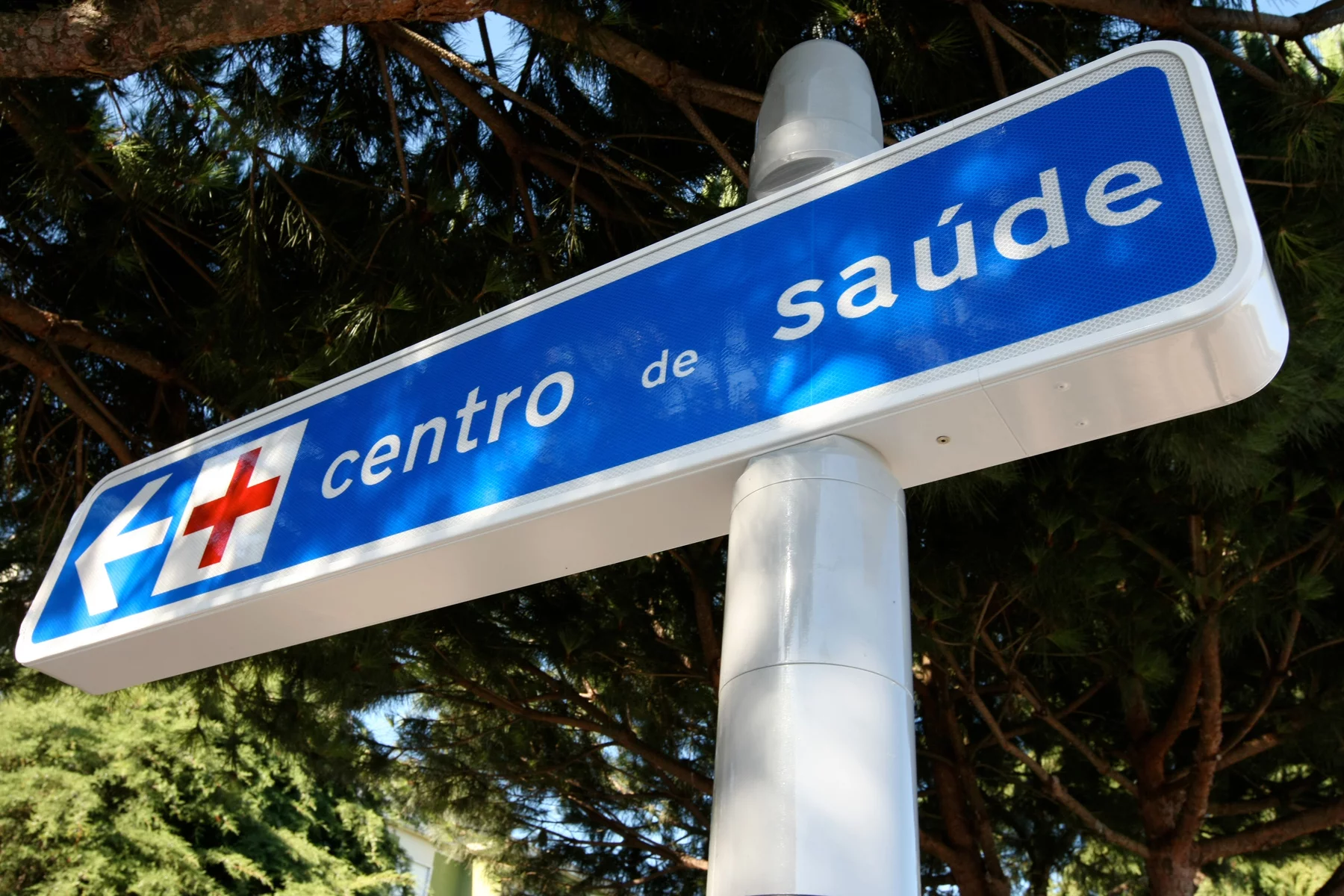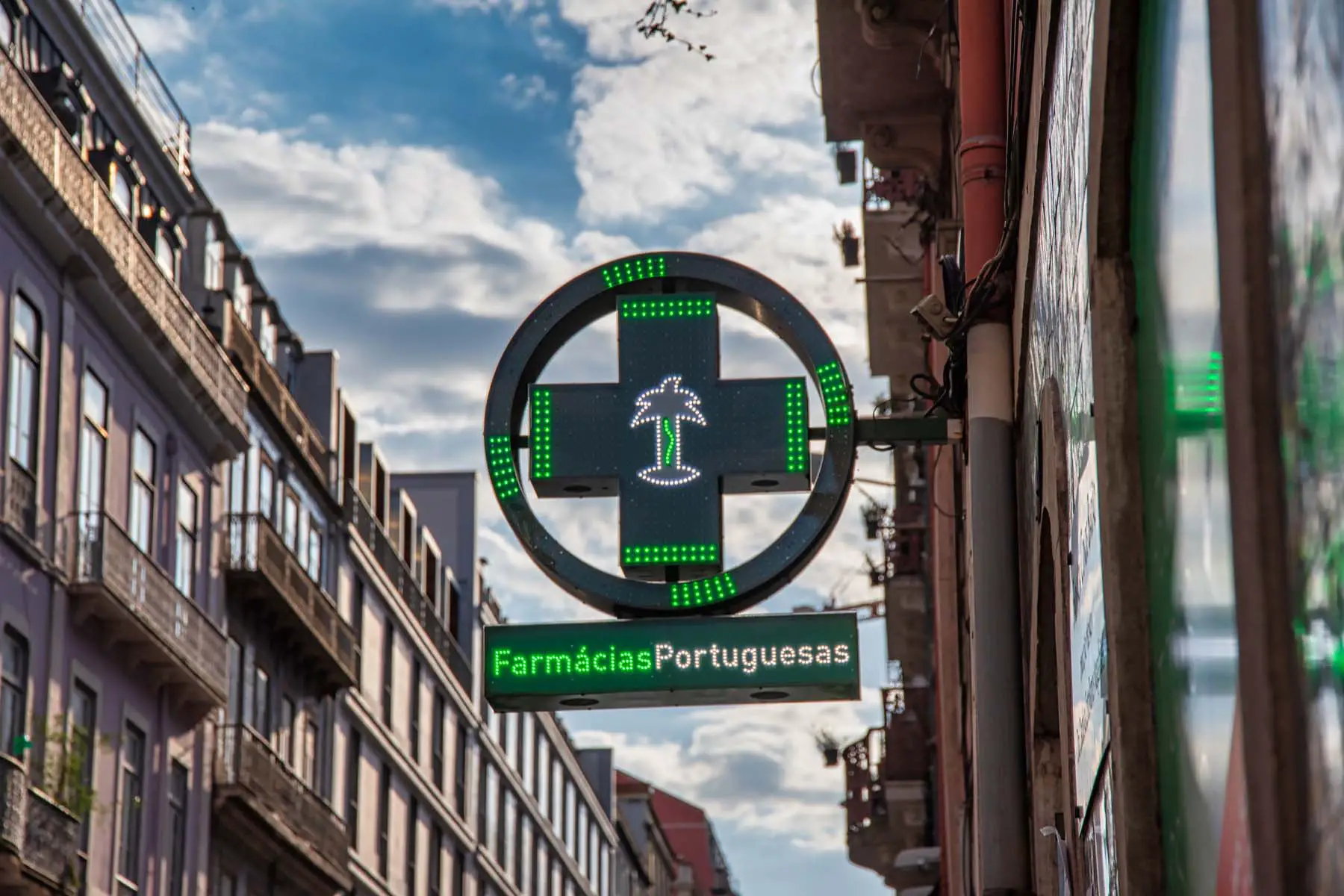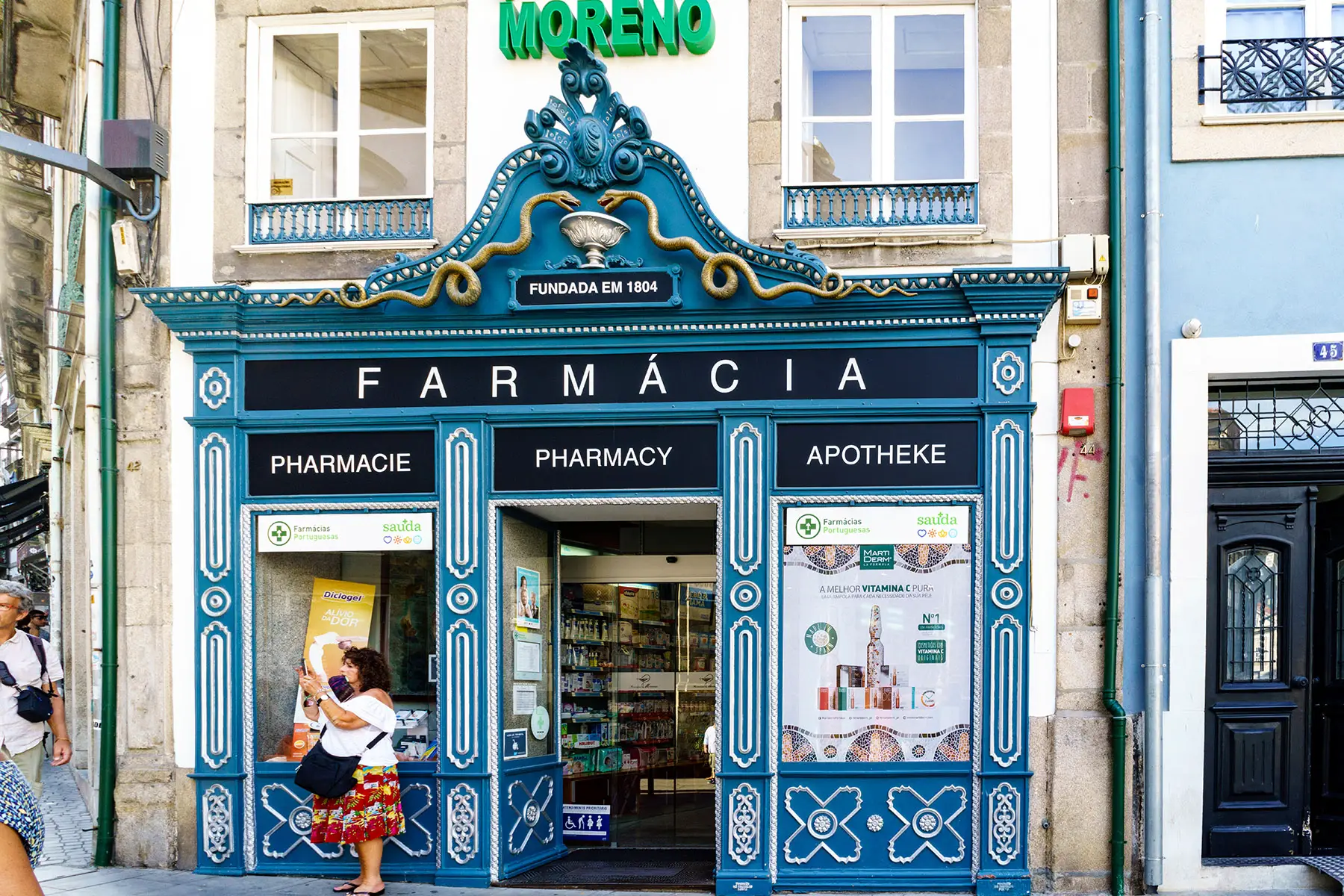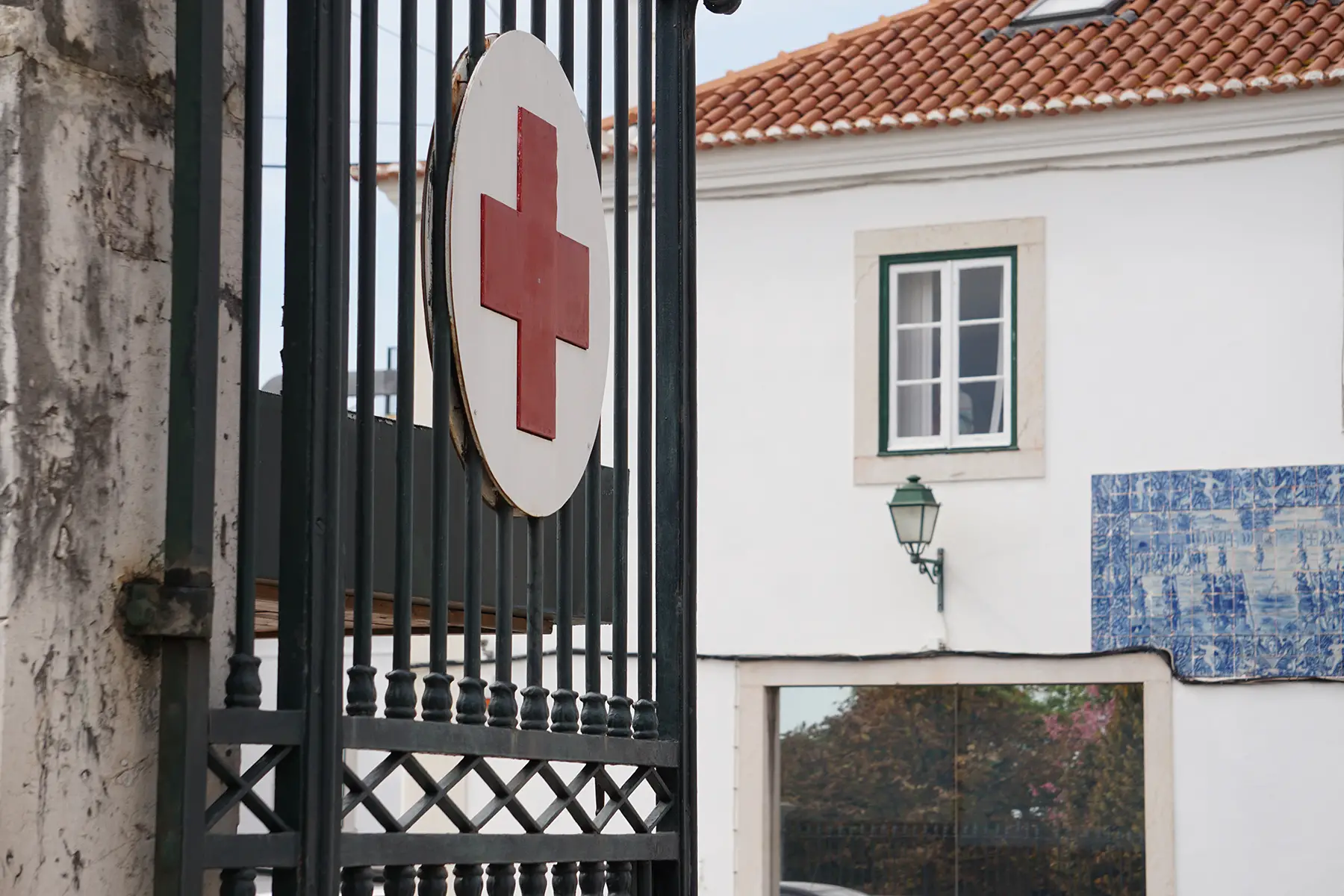We all need medical help from time to time. From finding a GP to understanding medical costs and language barriers, we outline everything you need to know about seeing a doctor in Portugal.
Continue reading for the following information:
- Overview of doctors in Portugal
- Who can see a doctor in Portugal?
- How to find a doctor near me in Portugal?
- How to see a doctor in Portugal: step-by-step
- How much do doctor visits cost in Portugal?
- Overview of Portuguese doctors’ services
- How to complain about a doctor in Portugal
- Practical medical words in Portuguese
- Useful resources
Cigna Global
Enjoy peace of mind while living in Portugal with Cigna Global’s long-term international health insurance plans (12+ months). Get tailored coverage, direct billing with many providers, complex case management, and global care on demand, with access to a network of 1.5+ million doctors, specialists, and therapists.
Overview of doctors in Portugal
Portugal has a universal healthcare system that covers nearly 99% of its residents, including expats. The system is funded through a combination of public and private health insurance, which ensures that everyone can access a broad range of medical services, including doctor visits (médico or médica) and emergency care.
According to the Instituto Nacional de Estatística (INE), Portugal has relatively many doctors compared to the rest of the EU. In 2023, there were 5.8 doctors per 1,000 residents (EU average in 2021: 4.1). That said, the number of doctors can vary a lot depending on the location. For example, in 2023, mainland Portugal had 5.9 doctors per 1,000 patients, while the Azores (Açores) had just 4.1.
Of these, quite a large number are family doctors; in 2022, the country had 30.4 GPs per 10,000 inhabitants (Eurostat, 2022).

All doctors in Portugal must be registered with the Portuguese Medical Association (Ordem dos Médicos).
Family doctors or GPs in Portugal
Family doctors or general practitioners (GPs) are usually your first point of contact for most health concerns in Portugal. In the public health system (Serviço Nacional de Saúde – SNS), you’re assigned a GP (médico de família) through your local health center (centro de saúde), although you can request a change if needed. You also have the option to see private GPs (médico de clínica geral), who typically offer more flexible hours and shorter waiting times.
Public health centers are generally open on weekdays from 08:00 to 20:00, but hours can vary slightly depending on the location. Most clinics are closed on weekends and public holidays.
GPs deal with routine health issues, carry out basic exams, and refer you to specialists when necessary. They also maintain your medical records and coordinate ongoing care or follow-up treatments.
Medical specialists in Portugal
If you need more specific care, the next step is usually a medical specialist (médico especialista). From dermatologists to cardiologists, Portugal has a wide network of specialists available in both the public and private healthcare sectors.
Medical specialists usually work in hospitals or private practices. Opening hours vary, but most operate Monday to Friday between 09:00 and 18:00, often with a break around lunchtime.
You’ll need a GP referral (encaminhamento) to see a specialist in the public sector. Wait times can be long; the best-case scenario is a few weeks, while the worst case is years. If you’re in a hurry to see a specialist, you’re probably better off going to private doctors, whom you can often see without a referral.
Who can see a doctor in Portugal?
Everyone can access medical care to some degree or another, including asylum seekers, refugees, and tourists. However, for non-urgent medical help, you have to pay large out-of-pocket costs or have health insurance coverage – either public, private, or both.

Our article on health insurance in Portugal covers the topic (and costs!) in more detail, but basically, there are both public and private doctors. While they both offer the same levels of quality care, the difference is in the insurance coverage and availability.
For example, while public services are free with public health insurance, they are notoriously overburdened and understaffed. This can lead to long waiting times and more rushed exams. Private doctors, on the other hand, cost more but have shorter waiting times and offer longer, personalized visits.
If you need private treatment but are unable to afford it, you can also go to the Dr. José Almeida Cascais Hospital. This health center operates under the Public-Private Partnerships model (PPP), meaning you get access to private physicians at the same cost as public ones. For more information, see the government’s website.
How to find a doctor near me in Portugal?
If you are in a life-threatening situation, go to the nearest hospital emergency room (Urgência). You can also call 112, which is the free pan-European number for any type of emergency. The operator will probably speak at least some English, but they are not likely to be native speakers, so make sure to talk slowly and clearly. They may ask you a few questions and then send over an ambulance as quickly as possible.
If your situation is less immediate (and more you looking for information), you can find doctors and GPs listed on the website of the Portuguese Medical Association. For private doctors, you can check websites like Doctoralia. And if you’re uncomfortable speaking Portuguese, Mobi Doctor has a registry of English-speaking doctors in Lisbon.
For medical issues outside regular opening hours, you can contact the SNS 24 on-call services (Urgência Ligue Sempre) on 0808 24 24 24. This helpline is available 24/7.
How to see a doctor in Portugal: step-by-step
Step 1: Register with your local doctor
Portuguese residents must first register with their local doctor. The public health system will probably assign you one at your local health center, though you can request a change if need be.

When registering, you’ll need to bring:
- Passport or valid ID
- Residency certificate
- NIF (i.e., Portuguese tax number)
- Social Security number
- Proof of address
You’ll then be provided with a Número de Utente (NSNS), which proves you have access to public healthcare. You’ll need to show this number when scheduling doctor’s appointments.
Of course, when you register with a private doctor in Portugal, you must provide proof of health insurance.
Step 2: Book a doctor’s appointment
Although some GPs accept walk-in patients, most require you to schedule an appointment in advance. You can do so with a quick phone call to the individual medical center or using an online service like Mobi Doctor. Specialists don’t do walk-ins unless it’s for urgent medical situations.
In Portugal, the public sector is struggling with high demands and labor shortages. As such, wait times can be notoriously long. In 2025, EuroNews reported that some cities saw urgent patients having to wait for more than nine hours before they could be admitted into the hospital.
When relying on public healthcare, you can generally expect to wait up to a week to see a GP and several months to see a specialist. Private doctors have shorter waiting times (though it will cost you more).
Step 3: Visit the health center
When you go to the scheduled appointment, make sure to bring your ID and phone. It’s recommended you download the government’s SNS 24 app, which allows your doctor to upload any prescriptions for medications, should you need them.
If you’re seeing a private doctor, you’ll also need your health insurance card. And if you don’t have health insurance, bring your wallet.

Although most doctors in Portugal understand some English, you may struggle to find one who speaks it fluently. This is particularly true if you live in a remote part of the country. You may need to bring a family member or interpreter to voice your medical issue clearly.
How much do doctor visits cost in Portugal?
Healthcare is shockingly cheap in Portugal. In the public system, doctor consultations are free. This also applies when you see a medical specialist and you have a referral (either from a GP or the SNS 24 Health Line).
When you go to a public hospital without a referral, you pay a small copayment (taxas moderadoras). In 2025, this is a maximum of €40 (2025). But even then, the following patients are exempt:
- If hospitalization is necessary
- Pregnant women and women in labor
- Children up to 12 years
- Patients with a disability level equal to or greater than 60%
- Donors of blood, cells, tissues, and organs
- Transplanted patients
- Firefighters and military personnel
- Ex-members of the Armed Forces with permanent disability due to military service
- Low-income patients
If you don’t have insurance and you go to a private doctor, you can expect to pay €40–100 for GP consultations and €80–150 for those with medical specialists. Emergency room visits cost approximately €150–300. With private health insurance, you’ll pay roughly one-third of the costs.
Do I need health insurance in Portugal?
Yes. Our article on Portuguese health insurance explains everything in full detail, but as a quick summary:
- Health coverage is a requirement for most residency permits
- Unlike private medical services, Portugal’s public health sector has ridiculously long waiting lines. In November 2024, one man even died while waiting to be seen by a hospital in Combria.
- While private healthcare is cheap, private insurance plans are even cheaper

There are many private health insurers in Portugal, and it’s worth shopping around to find the best deals. Aside from the home-grown health insurance providers, there are also international insurers who cater specifically to expats. These providers are ideal for residents who travel outside the country a lot and anyone who prefers expat-focused care:
Overview of Portuguese doctors’ services
Prescription medications
If necessary, the doctor may prescribe you medication, which you can pick up from any pharmacy (farmácia) in Portugal. To find one nearest to you, you can use any search engine or check the SNS website. Emergency out-of-hours pharmacies (farmácias de serviço) are listed on the website of Farcácias de Serviço.
When picking up a prescription, you typically need to pay a fee, depending on the medication classification and your income:
- Class A: Essential medicines (e.g., anti-epileptics) are 90% covered – you pay 10%
- Class B: Important medicines (e.g., anti-depressants) are 69% covered – you pay 31%
- Class C: Less critical medications (e.g., antihistamines) are 37% covered – you pay 63%
- Class D: Non-essential medicines (e.g., vitamin supplements) are 15% covered – you pay 85%
It’s worth noting that some life-sustaining medications (e.g., insulin) are fully covered by the SNS. So, despite them being class A drugs, you pay nothing. Similarly, low-income households and CSI seniors are exempt from medication copayments.

We advise expats using foreign medications to write down the generic brand name or the active ingredient of their medication. That’s because brand names can vary from country to country. For example, Prozac in the US is sold as Nodepe in Portugal. However, the generic brand name is Fluoxetine.
Medical tests in Portugal
While doctors in Portugal can perform several medical tests on location, some testing needs to be done by a local clinic (análises clínicas). In case of the latter, you will be given a referral. You can also purchase blood and urine self-testing kits (e.g., for diabetes) from pharmacies.
Once your test results arrive, you can contact your GP to discuss any possible next steps.
How to complain about a doctor in Portugal
Portugal has several ways to complain about a doctor or healthcare malfeasance. For example, you can leave a strongly-worded comment in the hospital’s or health center’s complaints book (Livro de Reclamações). This will later be passed on to a manager or superior.
If you feel your patient rights have been violated or you received subpar care, you can fill out the online complaints form (Folha de Reclamação) of the Health Regulatory Authority (Entidade Reguladora da Saúde – ERS). The provider then has 10 days to respond to you directly.
However, if your official complaint involves professional misconduct, negligence, or ethics, you can contact the Regional Disciplinary Council (Conselho Disciplinar Regional) of the Portuguese Medical Association.
In serious cases (e.g., malpractice or criminal negligence), you should consider legal action. You then need to file an official report with the Polícia Judiciária, and perhaps seek legal counsel to potentially sue your doctor in civil court.
Practical medical words in Portuguese
In places popular with expats, most Portuguese doctors understand English. However, it is a good idea to have a phrasebook or a translator app on your phone in case you need to explain more complicated health issues.
You’ll also want to remember some of these medical words in Portuguese:
| English | Portuguese |
| general practitioner | médico de família |
| doctor’s office | consultório |
| appointment | consulta |
| pain | dor |
| headache | dor de cabeça |
| stomach ache | dor de estômago |
| back pain | dor nas costas |
| fever | febre |
| cough | tosse |
| prescription | receita médica |
| painkiller | analgésico |
Useful resources
- Portal do SNS – official website with information on public healthcare in Portugal
- Portuguese Medical Association – official website of the regulatory body of doctors in Portugal








